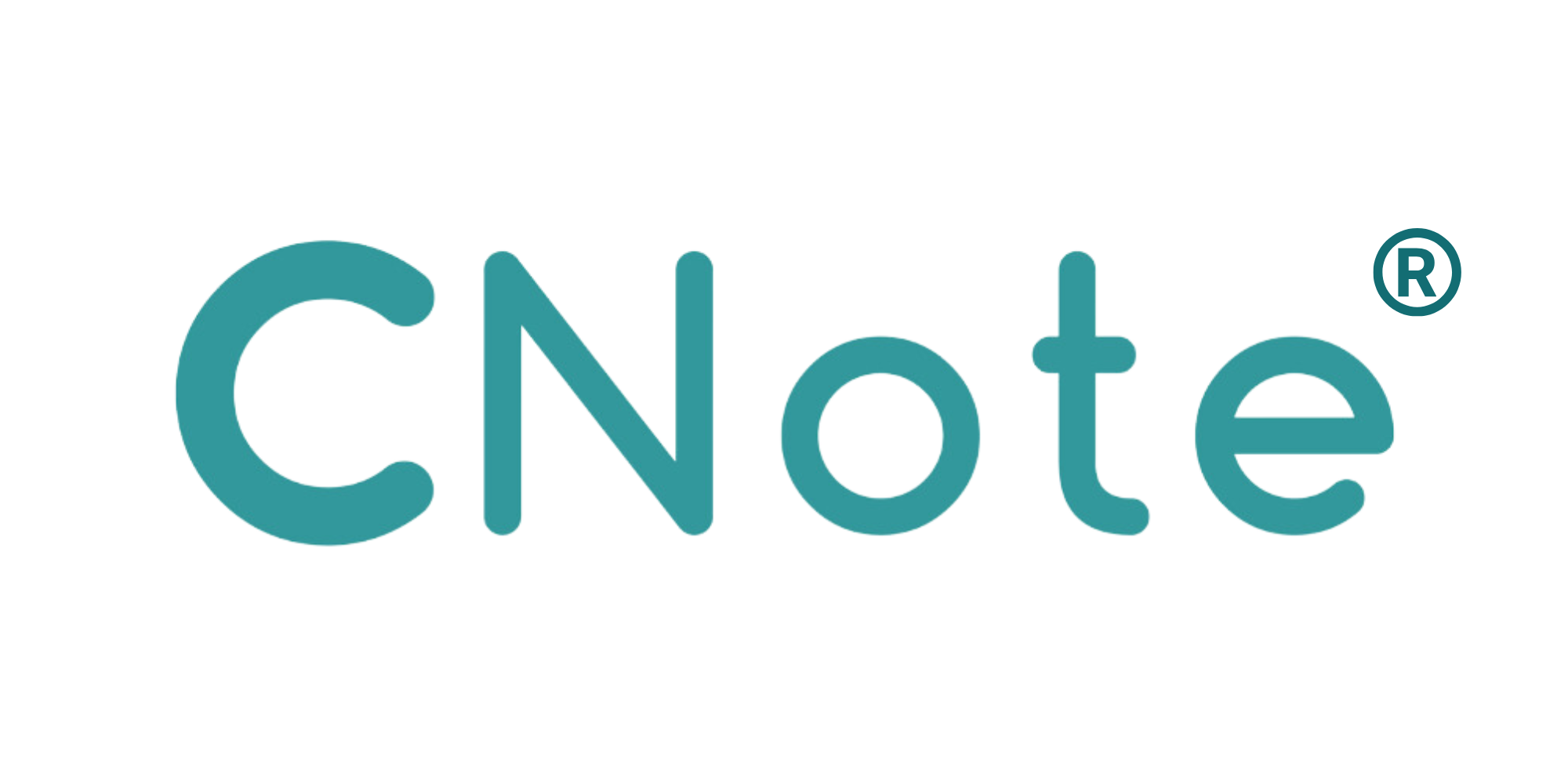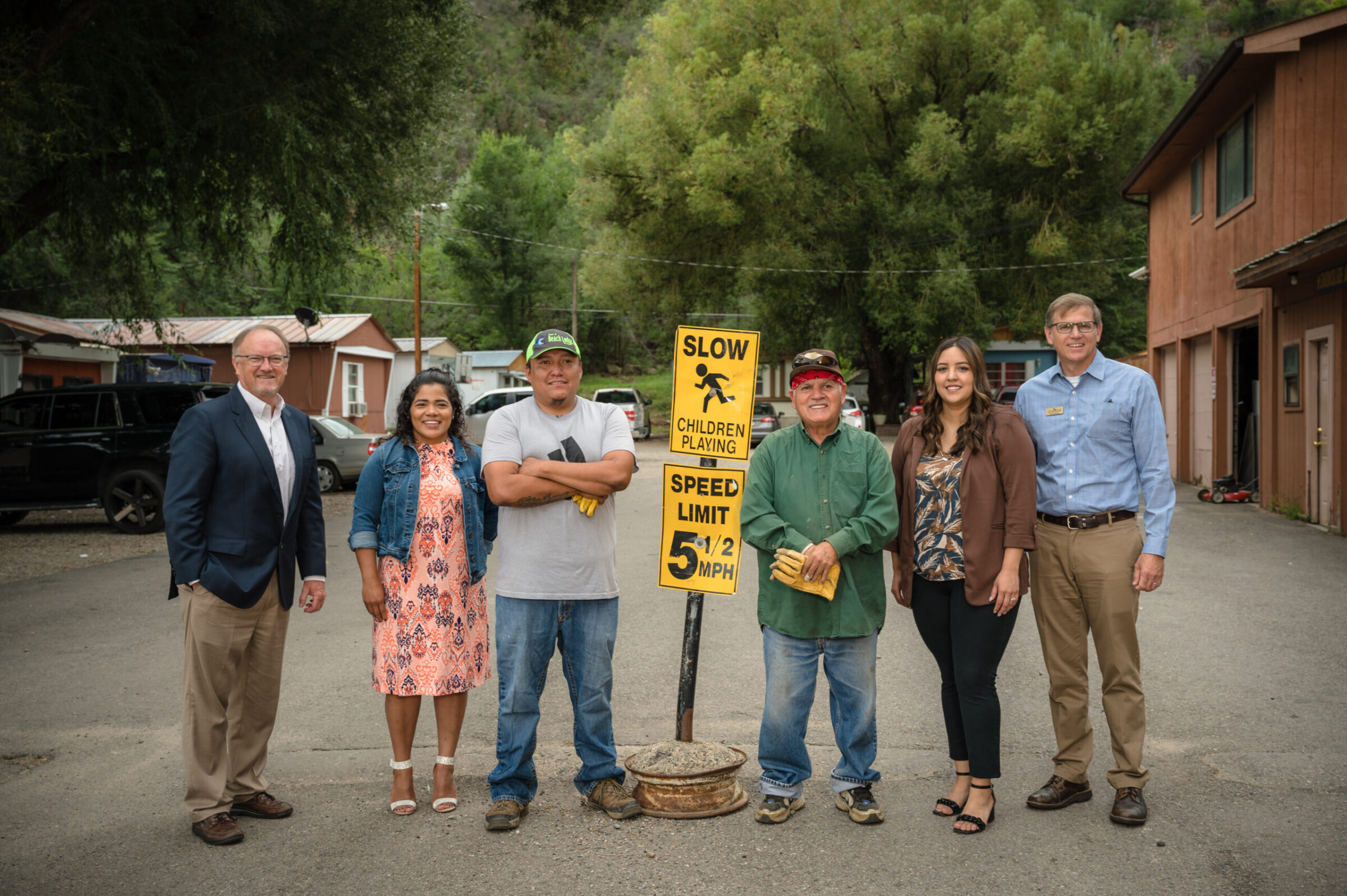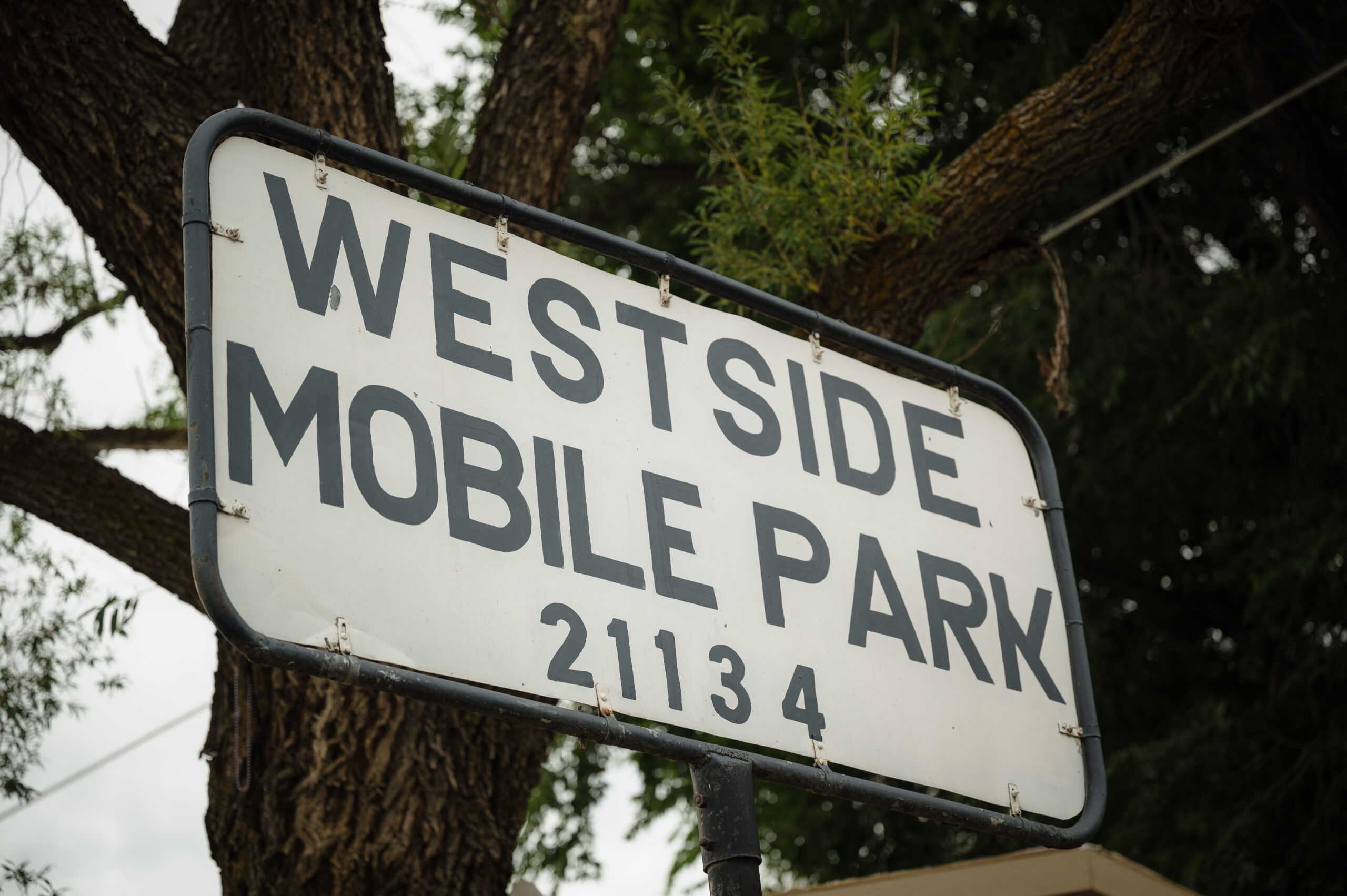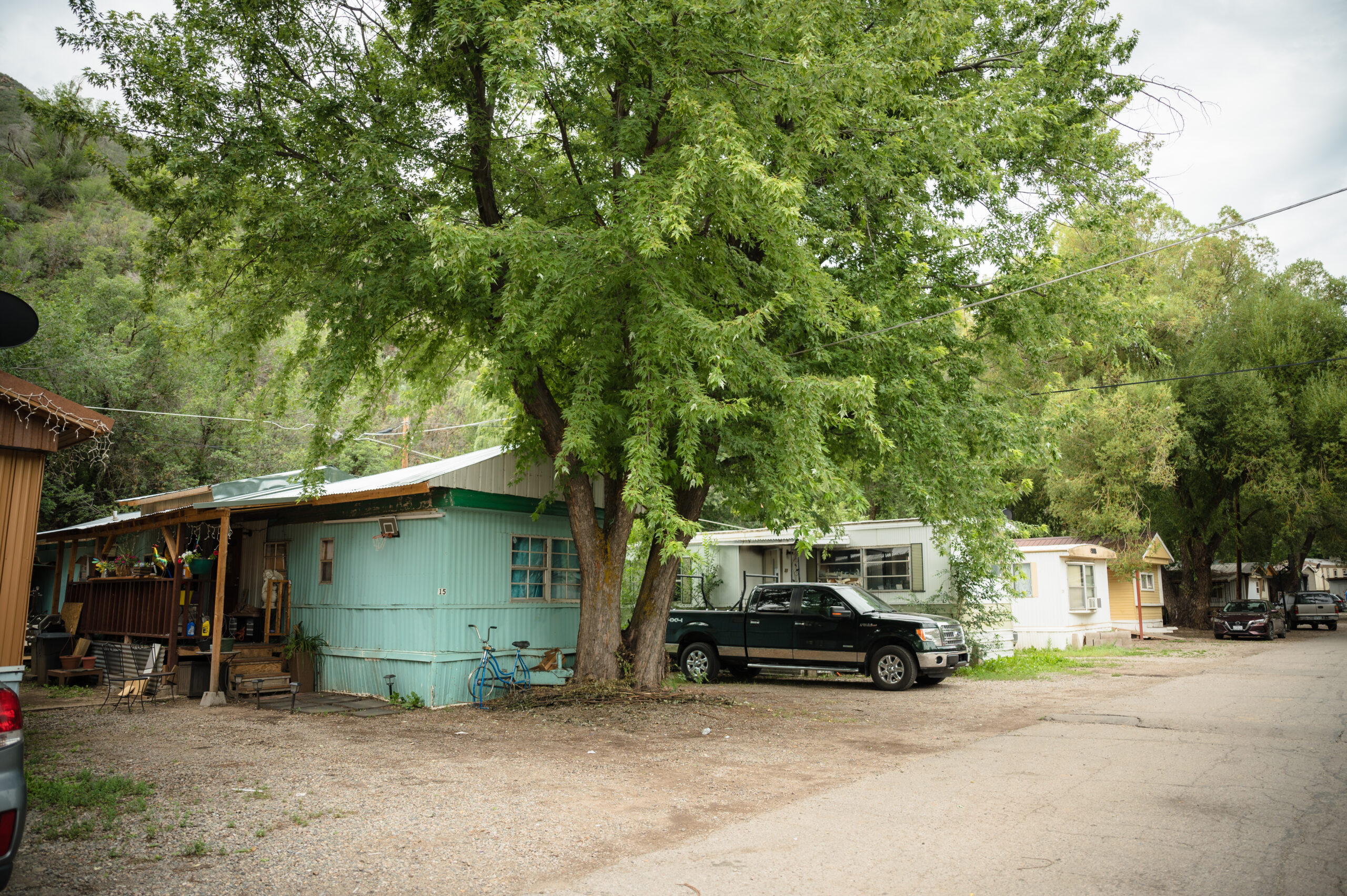In 2013, Kent Curtis had a question to answer. As the president and CEO of First Southwest Bank, he wanted to know which direction to steer the financial institution, which has served the San Luis Valley for more than 100 years. Colorado has three persistent poverty counties, and First Southwest Bank is located in the middle of them. Therefore, no matter what the future had in store for First Southwest Bank’s six Southern Colorado branches, Kent knew that continuing to provide capital to small businesses that supported rural communities in Colorado and New Mexico needed to remain at the heart of First Southwest Bank’s mission.
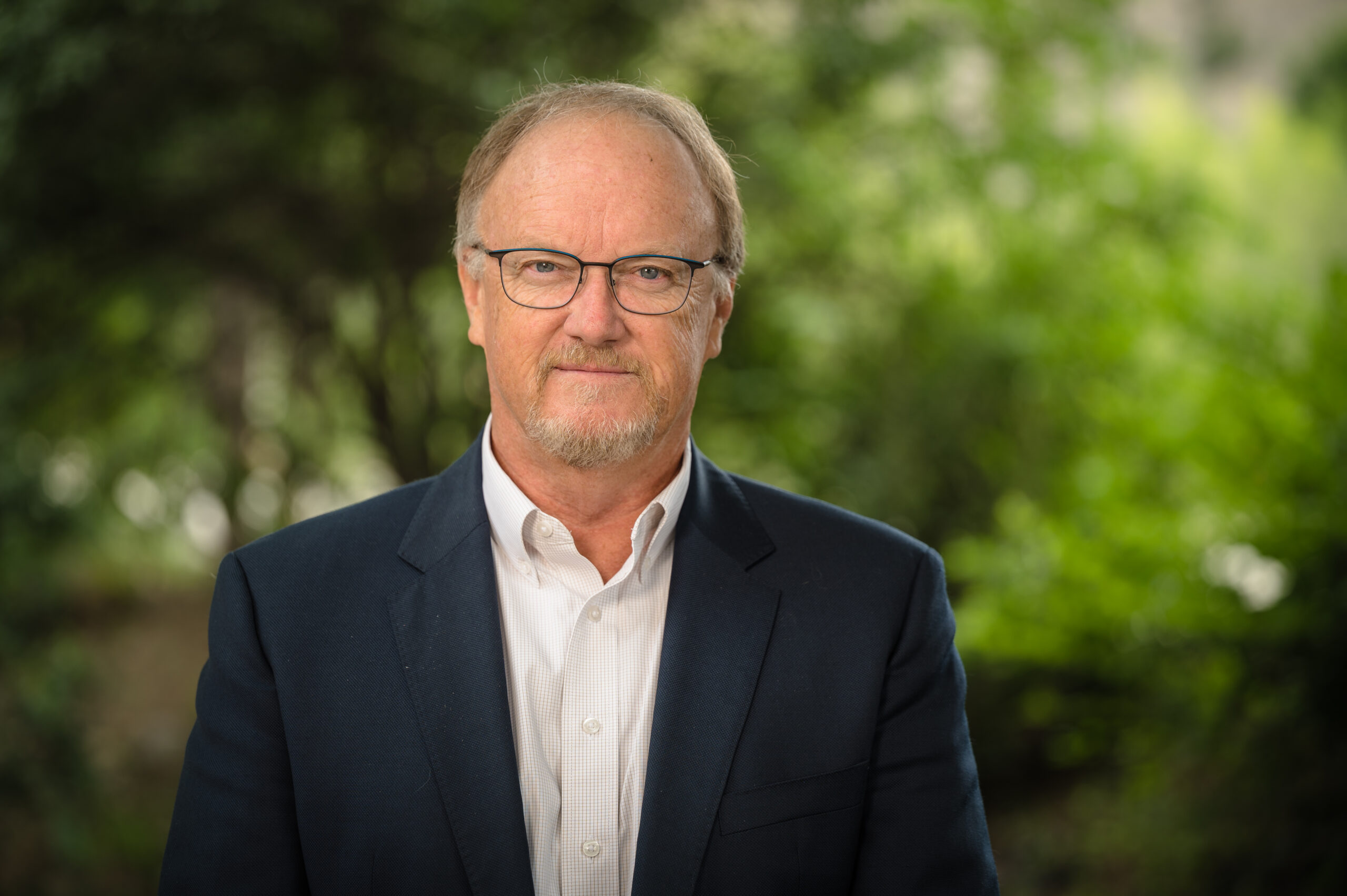
That’s when Kent had a conversation with another banker that changed everything. That other banker happened to be Kent’s brother, who introduced Kent to the U.S. Treasury’s Community Development Financial Institution (CDFI) Program. The conversation spurred Kent to do some research, and it didn’t take him long to realize that First Southwest Bank might qualify to become a CDFI Bank. In order to qualify, you must be able to demonstrate that at least 60% of your overall activities are to eligible populations and/or in eligible geographic areas, such as Persistent Poverty Communities. Kent and his team submitted an application, and in 2014, First Southwest Bank officially received its CDFI designation.
Not long after, First Southwest Bank began to receive money through various programs, including the Treasury’s Bank Enterprise Award and the United States Department of Agriculture (USDA). However, because the USDA can’t allocate some of their program funds to for-profit entities, First Southwest Bank decided to start a 501c3 nonprofit called First Southwest Community Fund in order to be eligible to receive those federal dollars. Although First Southwest Community Fund doesn’t have CDFI status, the nonprofit essentially acts as a CDFI revolving loan fund by providing low-cost business lending to individuals that may not otherwise qualify for loans through conventional banks. Not only can the nonprofit provide small businesses with small loans, but it is also able to serve as a subordinate lender alongside First Southwest Bank, thus providing risk-mitigating gap-financing allaying any concerns raised by the bank’s lenders.
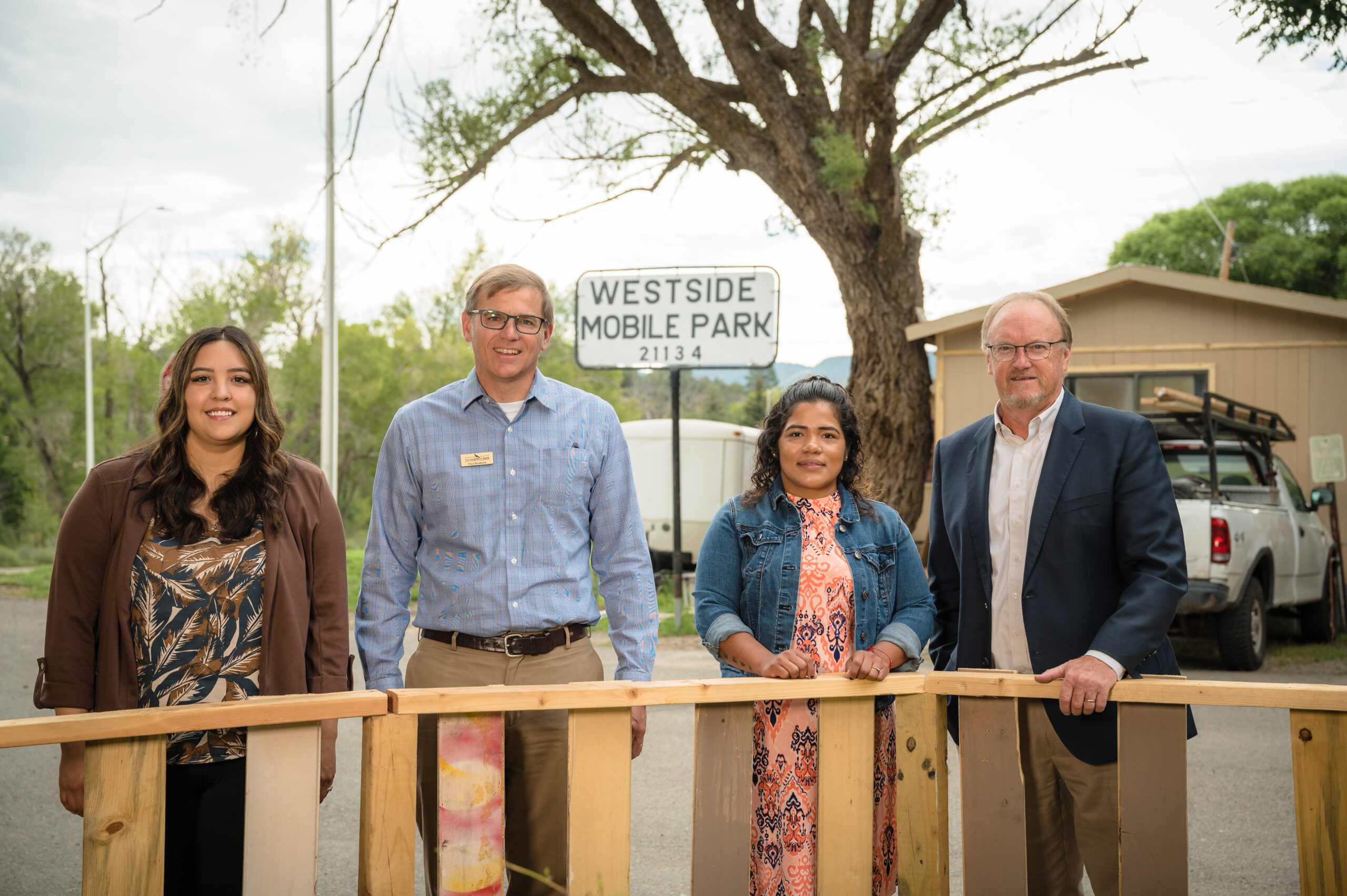 Another strength of this unique structure is that both First Southwest Bank and First Southwest Community Fund have access to different funding streams that enable them to make loans. For example, CNote invests Impact CashTM dollars in mission-driven and FDIC- and NCUA-insured CDFI partners like First Southwest Bank, generating returns on institutional investors’ cash allocations while supporting financially underserved communities across the country. Philanthropists, on the other hand, are attracted to First Southwest Community Fund because of its impressive leveraging ratio. For every dollar that comes into the nonprofit, it generates $5 worth of impact. “When you go out and talk to a philanthropist about a five-to-one leverage ratio,” Kent said, “that’s how we attract investors, because organizations don’t generally experience that kind of leveraging ratio.”
Another strength of this unique structure is that both First Southwest Bank and First Southwest Community Fund have access to different funding streams that enable them to make loans. For example, CNote invests Impact CashTM dollars in mission-driven and FDIC- and NCUA-insured CDFI partners like First Southwest Bank, generating returns on institutional investors’ cash allocations while supporting financially underserved communities across the country. Philanthropists, on the other hand, are attracted to First Southwest Community Fund because of its impressive leveraging ratio. For every dollar that comes into the nonprofit, it generates $5 worth of impact. “When you go out and talk to a philanthropist about a five-to-one leverage ratio,” Kent said, “that’s how we attract investors, because organizations don’t generally experience that kind of leveraging ratio.”
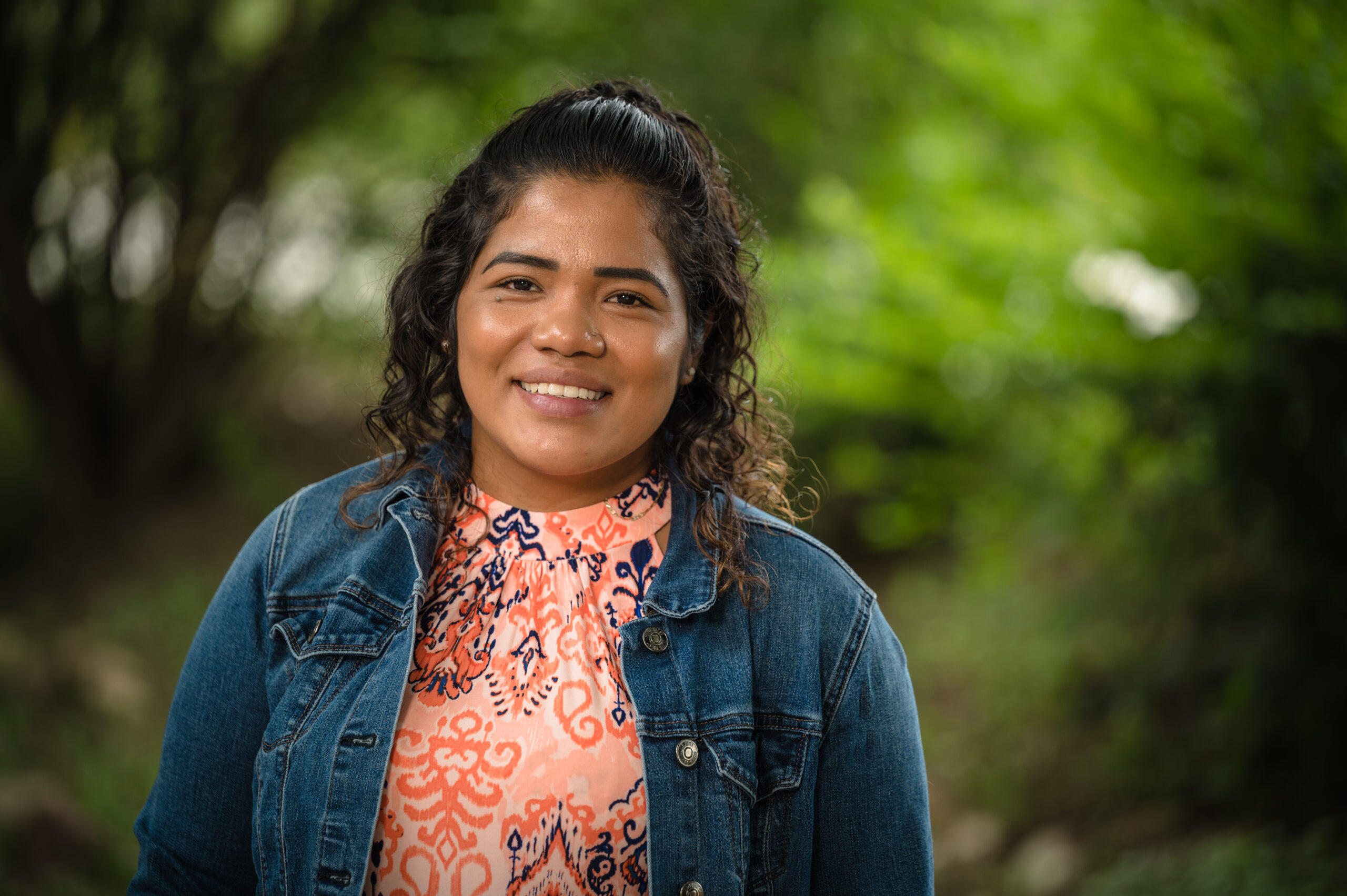 HelloBello is Here to Help
HelloBello is Here to Help
Roughly a year after launching First Southwest Community Fund, it became clear to Kent and his Chief Development Officer, Sherry Waner that there was an opportunity to help its own lenders access the myriad of programs that they now had, and to scale their collaborative approach to financing. That’s how HelloBello Financial, LLC was born, and Sherry was appointed as the CEO. HelloBello is a technology platform that rural-based lenders can use as a tool to efficiently evaluate and filter through various risk mitigating tools available to help small business owners. This allows them to identify innovative gap funding resources and create lending opportunities to support their communities in ways previously not possible. In other words, HelloBello helps solve access to capital challenges and is a way for community bank lenders to fill in gaps and fund projects that otherwise wouldn’t be possible. HelloBello brings together and amplifies the impact of mission-oriented capital and the leveraging abilities of community bank funding.
 Kent and Sherry beta-tested HelloBello with regional community banks just prior to the COVID-19 pandemic. Part of that initial testing was to demonstrate to other lenders that First Southwest Bank isn’t competing for their customers. Conversely, with HelloBello, the CDFI Bank has been able to prove that it can enhance and offer special funding and resources that these banks in other communities don’t have access to. That was especially true during the Paycheck Protection Program (PPP), where many other banks and credit unions across Colorado collaborated with First Southwest Bank to help their clients access this critical resource. Today, Sherry is preparing to launch a new-and-improved HelloBello in the near future. “We believe that HelloBello democratizes access to risk mitigated capital and will be transformational for community banking. This is one of our many tools that help other community banks create opportunities for their clients and deepen the impact in their communities,” Sherry said.
Kent and Sherry beta-tested HelloBello with regional community banks just prior to the COVID-19 pandemic. Part of that initial testing was to demonstrate to other lenders that First Southwest Bank isn’t competing for their customers. Conversely, with HelloBello, the CDFI Bank has been able to prove that it can enhance and offer special funding and resources that these banks in other communities don’t have access to. That was especially true during the Paycheck Protection Program (PPP), where many other banks and credit unions across Colorado collaborated with First Southwest Bank to help their clients access this critical resource. Today, Sherry is preparing to launch a new-and-improved HelloBello in the near future. “We believe that HelloBello democratizes access to risk mitigated capital and will be transformational for community banking. This is one of our many tools that help other community banks create opportunities for their clients and deepen the impact in their communities,” Sherry said.
HelloBello has already helped to deploy a significant amount of capital. For example, when Colorado’s State Legislature created a $30 million Colorado Agricultural Future Loan Program with economic recovery money to deploy statewide in rural areas, it ran into a major roadblock: it didn’t have any lenders. That’s when First Southwest Bank stepped in to assist the CO Department of Agriculture. As a CDFI Bank, First Southwest Bank is able to deploy the money through HelloBello, thus making those recovery dollars available to other lenders across Colorado. According to Kent, the primary reason that First Southwest Bank received the money is because of its CDFI designation and its outreach in underserved communities in Colorado.
Working Together to Keep Residents in Their Homes
That wasn’t the only time that First Southwest Bank’s CDFI designation has attracted potential collaborators. In early 2022, La Plata County approached Kent and his team to see if First Southwest Bank could help keep the residents of Westside Mobile Home Park in their homes. The previous month, residents had been informed that Westside’s owners wanted to sell the mobile home park, and the prospective buyer—a real estate company—had a history of raising rents. According to one resident, Alejandra Chavez, at the time, 58 predominantly Latinx families lived in Westside Mobile Park, and if the park came under new ownership, 38 of those families would have been displaced.
Because of a state law passed in 2020, Westside Mobile Home Park residents had the first right of refusal, which meant that they could put together an offer to buy their property from the owners. The challenge, however, was that they only had 90 days to come up with more than $5 million. Additionally, if the residents were going to successfully purchase their mobile home park, they were going to have to out-compete the real estate company’s no-contingency cash offer.
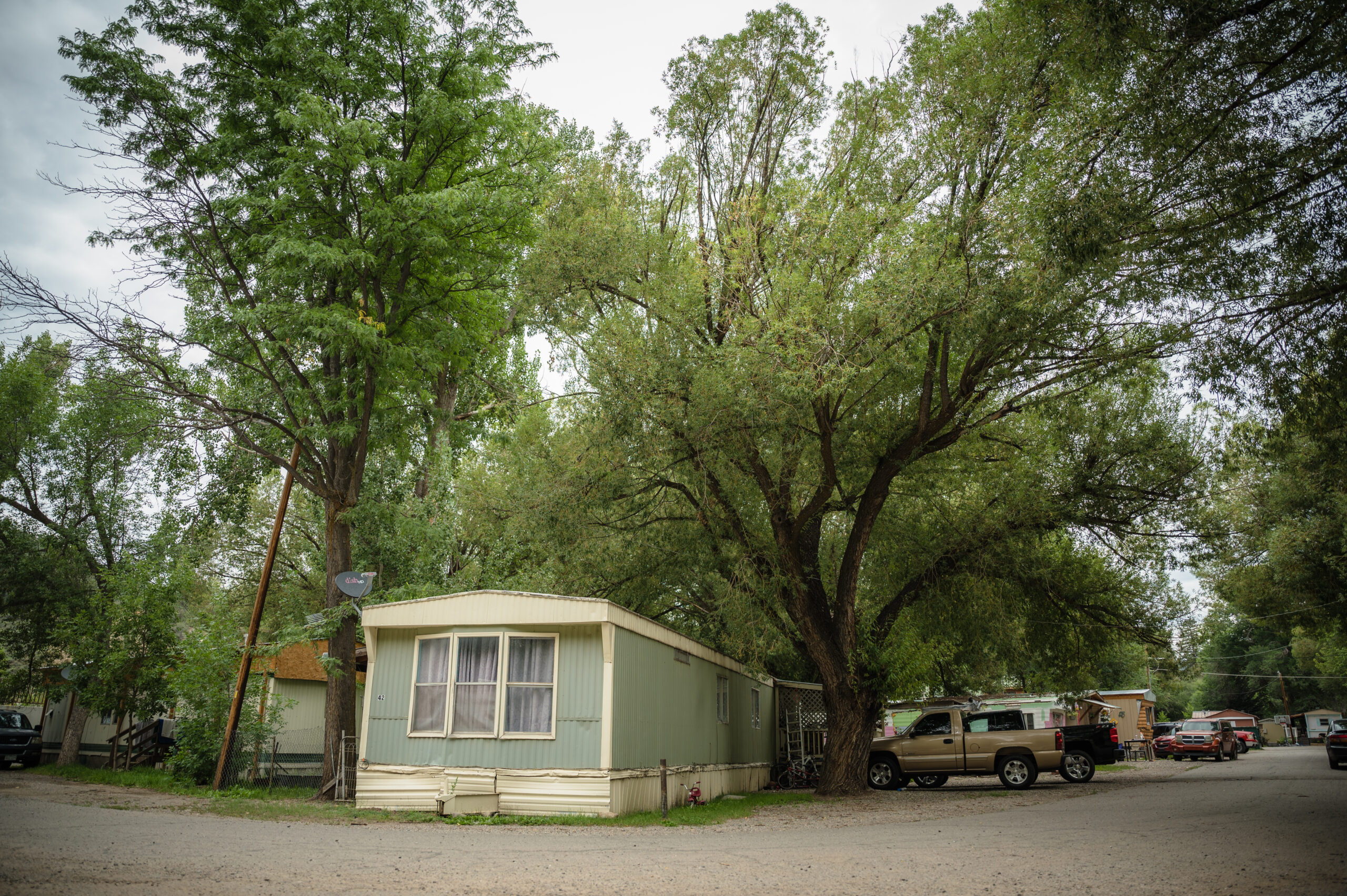 Given the narrow window of time and the hefty price tag, another CDFI nonprofit —Elevation Community Land Trust—began working with the residents to form a co-op and to get an offer in front of the mobile home park’s owner. That included getting La Plata County involved, which in turn brought First Southwest Bank to the table. La Plata County allocated $1.5 million to the initiative, a local business association invested $500,000, and the residents set up a GoFundMe, which brought in more than $30,000. Lastly, First Southwest Bank stepped up to finance the remaining $3.5 million. “I don’t know a lot of municipalities that would throw a bunch of money into this kind of thing,” Kent said, “but this mobile home park was so important, especially to the workforce of Durango businesses. The county felt that it was that important, and we had to do something.”
Given the narrow window of time and the hefty price tag, another CDFI nonprofit —Elevation Community Land Trust—began working with the residents to form a co-op and to get an offer in front of the mobile home park’s owner. That included getting La Plata County involved, which in turn brought First Southwest Bank to the table. La Plata County allocated $1.5 million to the initiative, a local business association invested $500,000, and the residents set up a GoFundMe, which brought in more than $30,000. Lastly, First Southwest Bank stepped up to finance the remaining $3.5 million. “I don’t know a lot of municipalities that would throw a bunch of money into this kind of thing,” Kent said, “but this mobile home park was so important, especially to the workforce of Durango businesses. The county felt that it was that important, and we had to do something.”
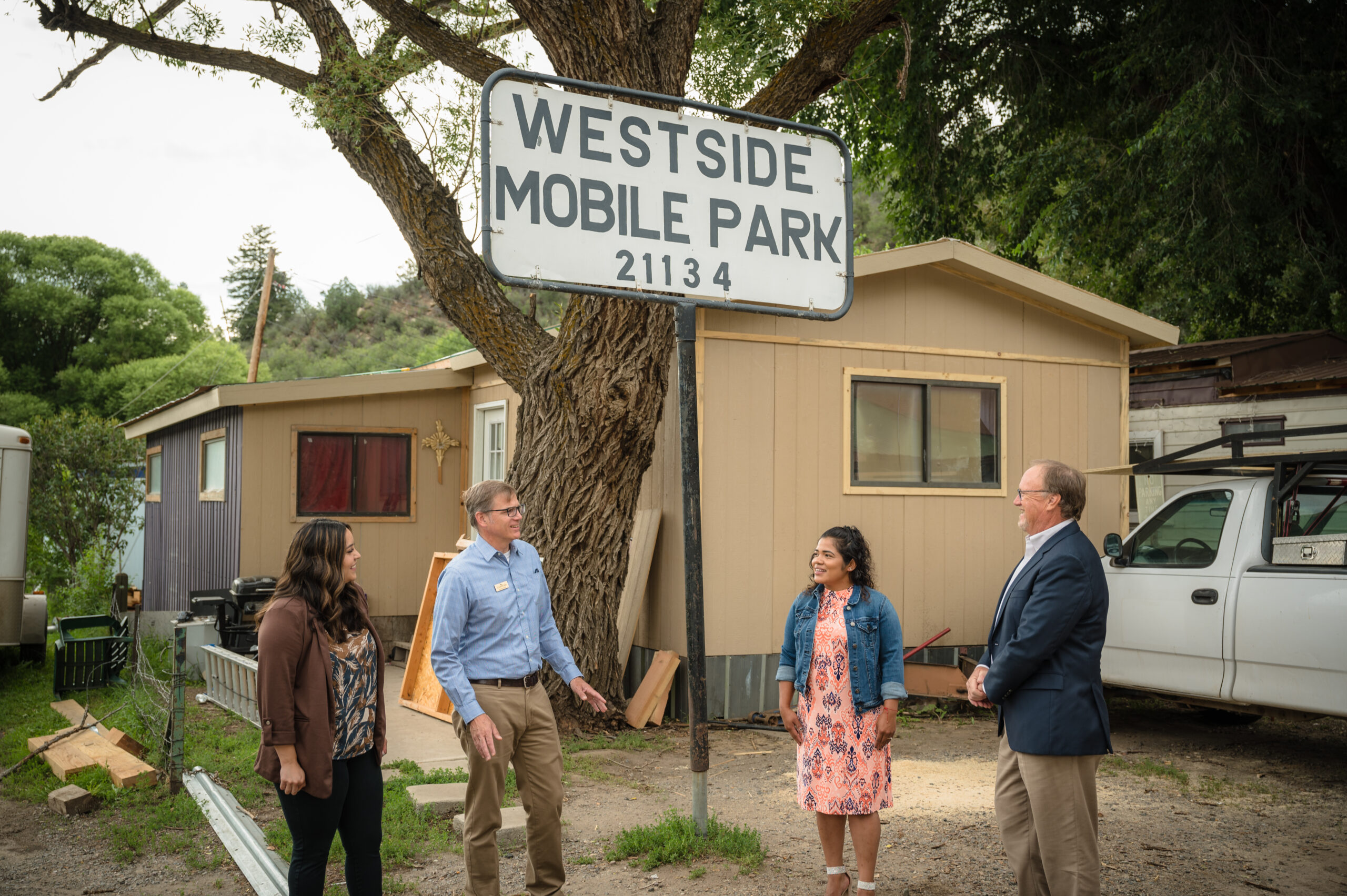 Unfortunately, the mobile home park’s owners rejected the residents’ initial offer. That’s because, according to Kent, First Southwest Bank had to order an appraisal, which became a contingency. Miraculously, within nine days of the rejection, Elevation Community Land Trust was able to bring in Impact Development Fund, another CDFI nonprofit, to structure a new funding stack. The new deal was made up of (1) a series of short-term cash loans to purchase the park and (2) additional loans to pay back those initial cash loans that Elevation could then pay off over time with other sources of financing. In this way, First Southwest Bank anchored the deal, providing the long-term financing to cover the short-term cash loans necessary to purchase the park. With that, the residents of Westside Mobile Home Park were able to make a no-contingency, cash offer on their land.
Unfortunately, the mobile home park’s owners rejected the residents’ initial offer. That’s because, according to Kent, First Southwest Bank had to order an appraisal, which became a contingency. Miraculously, within nine days of the rejection, Elevation Community Land Trust was able to bring in Impact Development Fund, another CDFI nonprofit, to structure a new funding stack. The new deal was made up of (1) a series of short-term cash loans to purchase the park and (2) additional loans to pay back those initial cash loans that Elevation could then pay off over time with other sources of financing. In this way, First Southwest Bank anchored the deal, providing the long-term financing to cover the short-term cash loans necessary to purchase the park. With that, the residents of Westside Mobile Home Park were able to make a no-contingency, cash offer on their land.
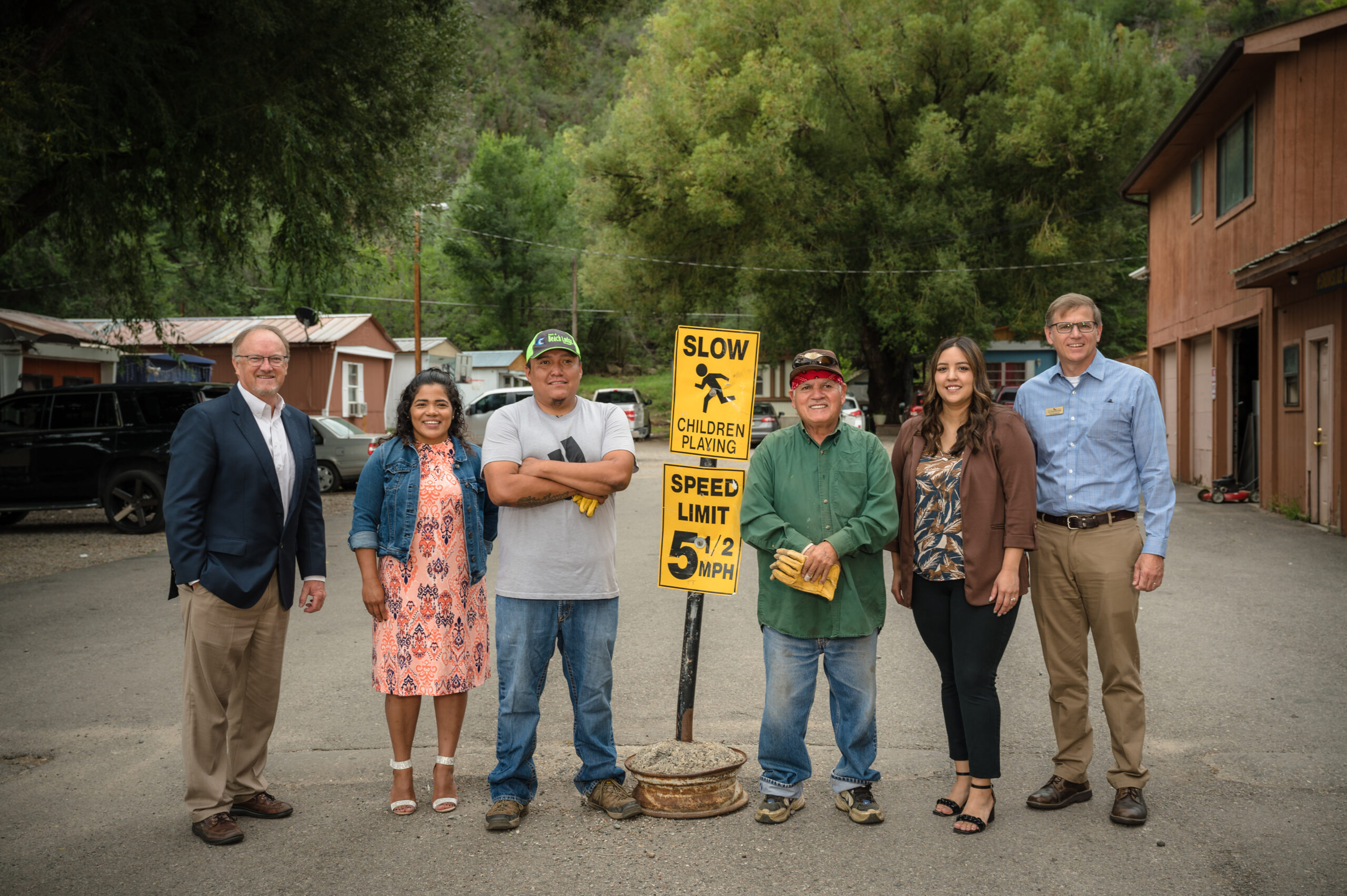 In the end, the residents’ second offer was accepted by the owners, and the co-op officially took over ownership of their land in late April 2022. It took the creativity, agility, and commitment of three different Colorado-based CDFIs to make it happen; but, according to Kent and his team at First Southwest Bank, the experience has been a win-win for everyone involved. There’s little question, however, that the biggest win belongs to the residents of Westside Mobile Home Park. Their success put an end to the inter-generational legacy of displacement experienced by many in their community. Just ask Alejandra Chavez-Alvarez. “The process started and somewhere along the way we lost our fear,” she was quoted as saying in The Durango Herald. “We felt the support of the community, and somewhere along the way, we became a part of that community. Many of us, for the first time, feel a part of Durango.”
In the end, the residents’ second offer was accepted by the owners, and the co-op officially took over ownership of their land in late April 2022. It took the creativity, agility, and commitment of three different Colorado-based CDFIs to make it happen; but, according to Kent and his team at First Southwest Bank, the experience has been a win-win for everyone involved. There’s little question, however, that the biggest win belongs to the residents of Westside Mobile Home Park. Their success put an end to the inter-generational legacy of displacement experienced by many in their community. Just ask Alejandra Chavez-Alvarez. “The process started and somewhere along the way we lost our fear,” she was quoted as saying in The Durango Herald. “We felt the support of the community, and somewhere along the way, we became a part of that community. Many of us, for the first time, feel a part of Durango.”
Learn More:
- First Southwest Bank is a Community Development Financial Institution (CDFI) bank that works to improve Colorado’s social and economic landscape while putting community at the core.
- CNote is a women-led investment platform that empowers individuals and institutions to invest locally to further economic equality, racial justice, gender equity, and address climate change.
